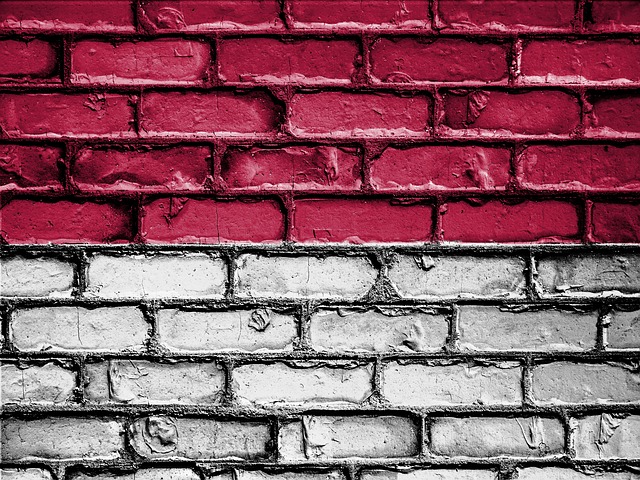
ProtectDefenders.eu partners have been informed about the judicial harassment of human rights defenders, Haris Azhar, Egi Primayogha, Miftachul Choir and woman human rights defender Fatia Maulidyanti in Indonesia. The defenders are believed to have been targeted in direct response to their peaceful and legitimate work in defence of human rights in Indonesia. Human rights defenders have observed that government officials abuse their power by using the Electronic, Information, and Transactions Law to silence activists and human rights defenders in the country.
On August 26, 2021, human rights defender Haris Azhar and woman human rights defender Fatia Maulidyanti were issued one subpoena by the Coordinating Minister for Maritime Affairs and Investment concerning the posting of a talk show on Haris Azhar’s YouTube channel. In the subpoena, Haris Azhar and Fatia Maulidyanti were asked to explain the reason for posting the video to the Coordinating Minister. In addition, the two defenders were asked to apologize in five days to the Minister through Haris Azhar’s YouTube channel, mass media, and online media and promise not to repeat the act. The subpoena mentions that if an apology is not made, legal actions will be taken against the human rights defenders.
In the video, Haris Azhar, previous Coordinator of Commission for the Disappeared and Victim of Violence (KontraS), a prominent human rights organization in Indonesia established in 1998 and Fatia Maulidiyanti, woman human rights defender and the current Coordinator of KontraS, discussed the research results of several human rights organizations, such as KontraS, Walhi, Jatam, YLBHI, and Pusaka, about the business of Indonesian Army officials and retirees behind the gold mining business and their plan to exploit the Blok Wabu area in Intan Jaya, Papua.
On 22 September, Luhut Binsar Pandjaitan, the Indonesian Coordinating Minister for Maritime Affairs and Investment filed a police report against the two human rights defenders. The police report alleges that the two individuals violated criminal defamation provisions (Article 310 (1) of the Penal Code), and the controversial Electronic Information and Transaction law (EIT Law). Luhut Binsar Pandjaitan has reportedly demanded IDR 300 billion, approximately USD 21 million, in compensation.
On 23 September, a group of human rights organisations – including ProtectDefenders.eu’s partners FORUM-ASIA, FIDH, Front Line Defenders (FLD) and the OMCT called the Indonesian government to put an end to the judicial harassment against Fatia Maulidiyanti and Haris Azhar, and uphold the right to freedom of expression. The group urged the Indonesian government to ensure that all persons can express their opinions without fear of reprisals, and to ensure its actions are compliant with Indonesia’s Constitutional protections for human rights and the ICCPR, of which Indonesia is a State Party. The National Human Rights Institution, Komnas HAM, must also work towards ensuring the protection of defenders facing judicial harassment, the group said.
Moreover, on 10 September 2021, General Moeldoko, the Presidential Chief of Staff officially reported human rights defenders Egi Primayogha and Miftachul Choir to the Criminal Investigation Unit of the National Police of Jakarta for alleged defamation, related to article 27 of the Electronic Information and Transactions Law and articles 310 and 311 of the criminal code. If charged, the human rights defenders could be sentenced to 6 years in prison.
Egi Primayogha and Miftachul Choir are both human rights defenders and members of Indonesia Corruption Watch (ICW), a prominent anti-corruption organization in Indonesia. The accusations against them relate to a study published by the Political Corruption Division of ICW which alleges the involvement of various public officials, in promoting the circulation of the drug Ivermectin during the COVID-19 pandemic. Both human rights defenders were involved in the research and presentation of this study.
President Joko “Jokowi” Widodo failed to keep his campaign promises about respect for press freedom during his first five-year term and his reelection in May 2019 was followed by rioting during which many journalists were targeted. His pro-media comments are belied by the drastic restrictions on media access to West Papua (the Indonesian half of the island of New Guinea), where violence against local journalists keeps on growing. Foreign journalists and local fixers are liable to be arrested and prosecuted there, both those who try to document the Indonesian military’s abuses and those who cover humanitarian issues. The authorities also no longer hesitate to disconnect the Internet at times of tension. As the Jakarta-based Alliance for Independent Journalists often reports, the military also intimidates reporters and even uses violence against those who cover its abuses. Radical religious groups also threaten the media’s right to inform. Many journalists say they censor themselves because of the threat from an anti-blasphemy law and the Law on “Informasi dan Transaksi Elektronik” (Electronic and Information Transactions Law). In 2020, the government took advantage of the Covid-19 crisis to reinforce its repressive weaponry against journalists, who are now banned from publishing not only “false information” related to the coronavirus but also any “information hostile to the president or government” even if it is unrelated to the pandemic.


